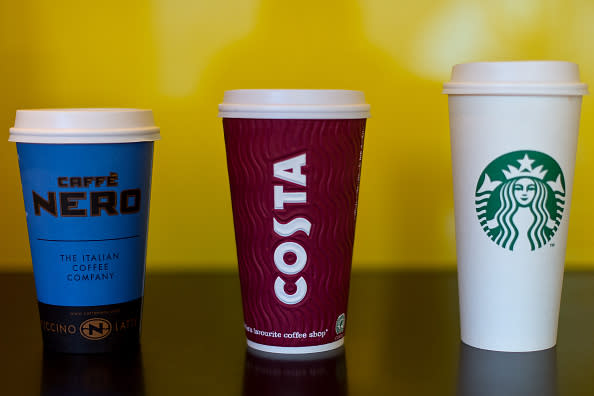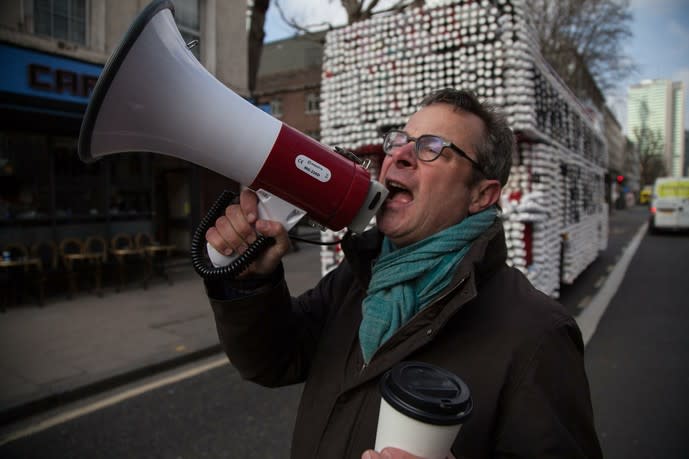Charging punters for their takeaway coffee cup could cut waste by 300 million a year

Charging the nation’s coffee drinkers for reusable cups could cut the waste mountain by as many as 300 million a year.
New research shows that – much like a charge for supermarket plastic bags – consumers could swallow a small charge if they see the environmental upside.
Financial incentives, re-usable alternatives, and clear messaging reminding customers of the environmental impact of single use coffee cups all had a direct impact on consumer behaviour, academics at Cardiff University demonstrated.
Some 2.5 BILLION cardboard coffee cups are used each year in Britain – and the vast majority are tossed away in bins on the way to and from work, or at train stations, for example.
The study showed that a charge on disposable cups increased the use of re-usable coffee cups by 3.4%, environmental messaging in cafes increased the use of re-usable coffee cups by 2.3%, the availability of re-usable cups led to an increase of 2.5%, and the distribution of free re-usable cups led to a further increase of 4.3 %.
[graphiq id=”cGAuidHSaJT” title=”Starbucks Drinks with the Most Sugar per Serving” width=”600″ height=”490″ url=”https://w.graphiq.com/w/cGAuidHSaJT” link=”http://nutrition.healthgrove.com” link_text=”HealthGrove | Graphiq” ]
“While the increases for individual measures were modest, the greatest behavioural change was when the measures were combined,” said Prof Wouter Poortinga, lead author of the report.
“Our results show that, on average, the use of reusable coffee cups could be increased by up to 12.5% with a combination of measures.
“With this in mind, the UK’s usage of an estimated 2.5bn disposable coffee cups each year could be cut by up to 300 million coffee cups,” he added.
Read more: Waitrose is taking people’s free coffee away and no one can cope
Read more: Drinking coffee ‘could be the key to a long life’ – and now scientists know why
Read more: Veolia to invest £750 million in UK recycling
The most notable finding was that, while a charge on disposable cups increased the use of re-usable coffee cups, a discount on re-usable coffee cups had no impact on their usage.
Prof Poortinga added: “There is an important nuance when it comes to financial incentives.
“People are far more sensitive to losses than to gains when making decisions – so if we really want to change a customer’s behaviour then a charge on a disposable cup is more likely to be effective.”
The report, which was commissioned by coffee roaster Bewley’s, will be submitted to the government which is investigating waste in the food industry.
The UK consumes some 55 million cups of coffee a day – and the takeaway coffee market is an £8bn a year industry.

Celebrity chef Hugh Fearnley-Whittingstall has previously taken the takeaway coffee industry to task over the issue as part of his War on Waste TV series.
He learned that just 1% of the cups were actually recycled despite claims by major chains that they use recyclable cups.
The problem, he learned, is that “paper” cups are not actually simply made of paper but include a layer of polyethylene. This means they cannot simply be recycled with paper or cardboard.
The likes of Starbucks, Costa and others have all pledged to work with cup makers, the recycling industry and consumers to address the issue.

 Yahoo Finance
Yahoo Finance 
